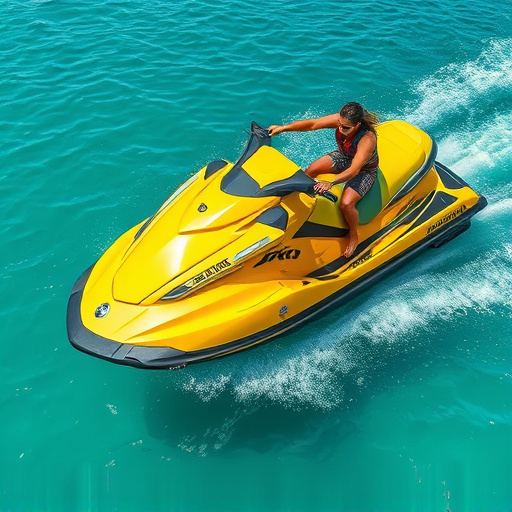Choosing eco-friendly boat batteries over traditional lead-acid models is key to preserving marine ecosystems and reducing environmental impact. Lithium-ion (Li-ion) batteries offer improved performance, longer lifespans, and reduced toxicity, while emerging technologies like flow and solid-state batteries promise even greater efficiency and safety. Integrating solar power further enhances sustainability, as boaters embrace renewable energy sources to minimize their carbon footprint. Best practices in boat battery management, including regular maintenance and smart charging, contribute to a greener marine industry. The global shift towards sustainable boat batteries is driven by innovations like Li-ion technology, transforming maritime transportation for a cleaner future.
Embrace the future of boating with eco-friendly battery innovations. In an era focused on sustainability, understanding the impact of your boat battery choices is crucial. From reducing environmental footprint to optimizing performance, green technologies like lithium-ion batteries and solar power integration are transforming marine applications. This comprehensive guide explores best practices, case studies, and the promising future of boat batteries, empowering you to make informed decisions for a greener sea.
- Understanding the Impact of Boat Battery Choices
- Exploring Green Battery Technologies for Boats
- Benefits of Lithium-Ion Batteries in Marine Applications
- Integrating Solar Power for Sustainable Boating
- Best Practices for Efficient Energy Storage
- Case Studies: Eco-Friendly Fleet Transformations
- The Future of Boat Batteries: A Green Revolution
Understanding the Impact of Boat Battery Choices
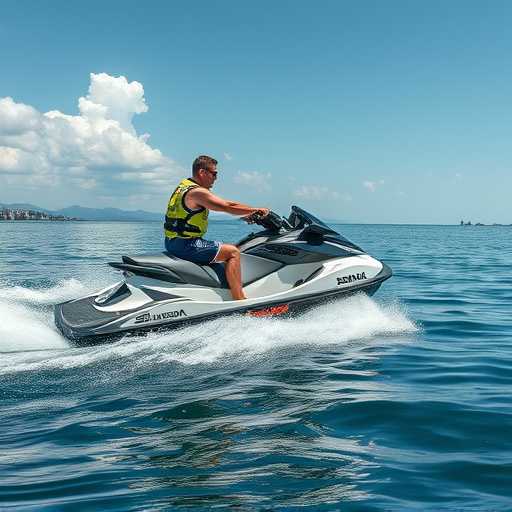
Choosing the right boat battery is more than just about power; it’s a crucial decision with significant environmental implications. The impact extends beyond your vessel, reflecting on the health of our aquatic ecosystems. Traditional lead-acid batteries, commonly used in boats, pose substantial risks. They contain toxic materials that can leach into water bodies when disposed of improperly or during accidents, causing harm to marine life and contaminating drinking water sources.
By embracing eco-friendly battery innovations, such as lithium-ion alternatives, boaters can significantly reduce these environmental risks. These advanced batteries offer not only superior performance and longer lifespans but also eliminate the hazardous waste associated with lead-acid batteries. This switch is a proactive step towards sustainable boating practices, ensuring a cleaner and healthier marine environment for future generations to enjoy.
Exploring Green Battery Technologies for Boats
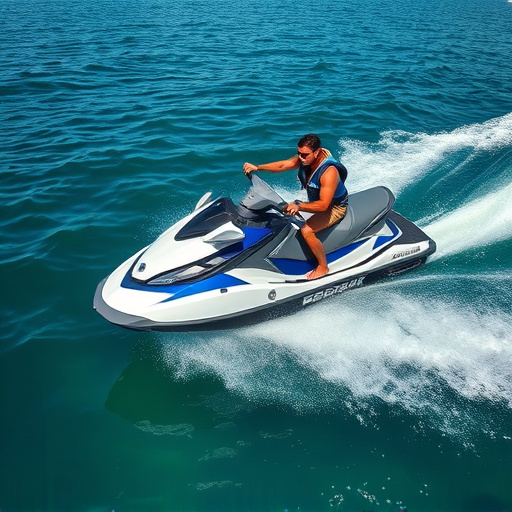
In the quest for a greener future, exploring eco-friendly battery innovations is essential, especially in sectors that heavily rely on power sources like boats. Traditional boat batteries contribute to environmental degradation due to their lead content and disposal challenges. However, green technologies offer promising alternatives. One prominent example is lithium-ion (Li-ion) batteries, renowned for their high energy density and reduced environmental impact compared to lead-acid counterparts. These advanced batteries are lightweight, durable, and more easily recycled, making them an excellent choice for marine applications.
Additionally, emerging technologies like flow batteries and solid-state batteries further expand the eco-friendly boat battery landscape. Flow batteries, with their ability to store energy in liquid electrolytes, offer long lifespans and scalable energy storage. Solid-state batteries, on the other hand, promise enhanced safety, faster charging times, and higher energy density. As these innovations mature, they hold significant potential to revolutionize boating by providing clean, sustainable power solutions that minimize environmental impact while meeting the unique demands of marine applications.
Benefits of Lithium-Ion Batteries in Marine Applications
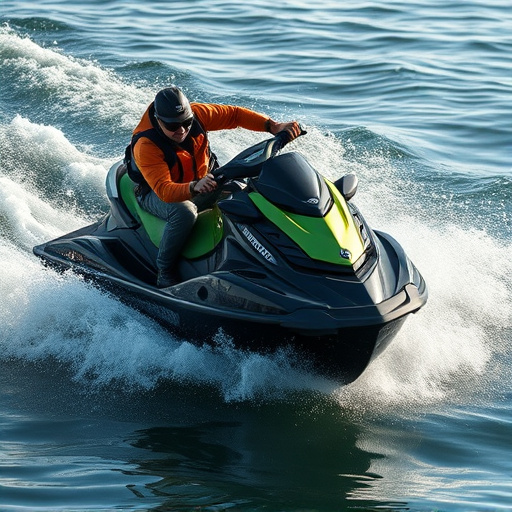
Lithium-ion batteries have brought about a revolution in marine applications, offering numerous benefits for boaters and shipowners. These advanced power sources are lightweight yet incredibly powerful, making them an ideal choice for boats where space is limited and efficient energy storage is key. Compared to traditional lead-acid batteries, lithium-ion variants provide longer lifespan, faster charging times, and higher energy density, ensuring a boat can navigate with minimal downtime or weight constraints.
Moreover, the eco-friendliness of these batteries cannot be overlooked. Lithium-ion technology significantly reduces environmental impact during production and disposal, as it does not involve heavy metals like lead that are toxic to marine ecosystems. This makes them a sustainable choice for those seeking to minimise their carbon footprint while enjoying the benefits of modern marine power.
Integrating Solar Power for Sustainable Boating
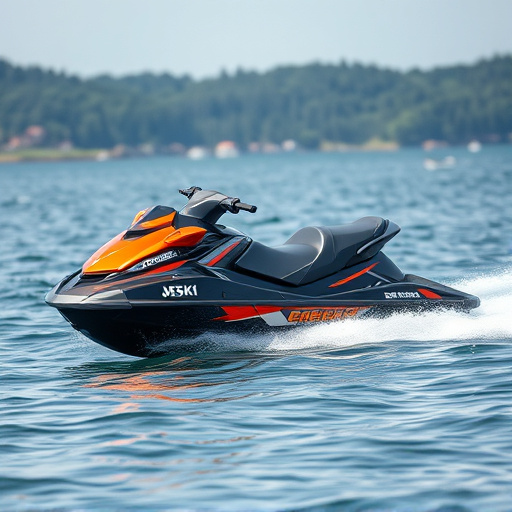
In the pursuit of a greener future, integrating solar power offers a sustainable solution for boaters looking to embrace eco-friendly practices with their boat batteries. By harnessing the sun’s energy, boaters can significantly reduce their reliance on conventional fuel sources and minimize the environmental impact associated with traditional boating methods. Solar panels, strategically placed on the boat’s surface, act as a clean energy generator, providing a constant and renewable power supply to charge boat batteries efficiently.
This innovative approach not only reduces carbon emissions but also offers cost savings in the long run. With solar-powered charging systems, boaters can extend the lifespan of their boat batteries while contributing to a greener marine environment. Moreover, combining solar energy with advanced battery technologies ensures optimal performance and reliability during extended boating trips, making it an attractive and responsible choice for eco-conscious water enthusiasts.
Best Practices for Efficient Energy Storage
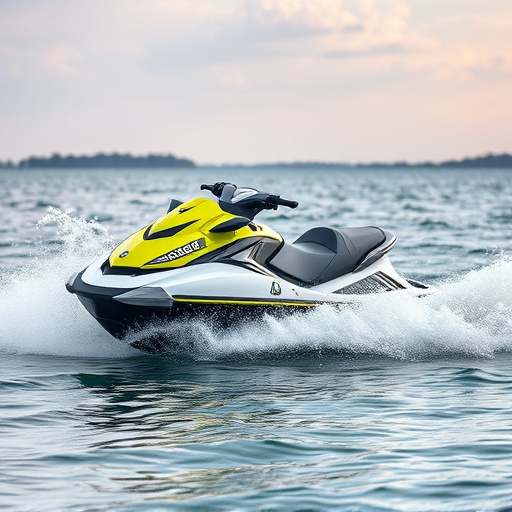
Embracing eco-friendly battery innovations is not just a trend but a necessity for our planet’s health, especially in the context of energy storage for boats. Efficient energy management on boats can significantly reduce their environmental footprint. Best practices include optimizing the use of renewable energy sources like solar panels and wind turbines, which can charge boat batteries during navigation or mooring. Regular maintenance is key; checking battery health, cleaning corrosion from terminals, and ensuring proper ventilation prolongs battery life, reducing the need for frequent replacements.
Additionally, smart charging systems that monitor and regulate battery charging rates based on usage and ambient conditions can prevent overcharging, extending battery lifespan. Using energy-efficient appliances and optimizing navigation routes to reduce engine runtime further enhances energy conservation. Remember, every small step towards efficient energy storage contributes to a greener marine industry, ensuring the preservation of our oceans for future generations while maintaining your boat’s reliability.
Case Studies: Eco-Friendly Fleet Transformations
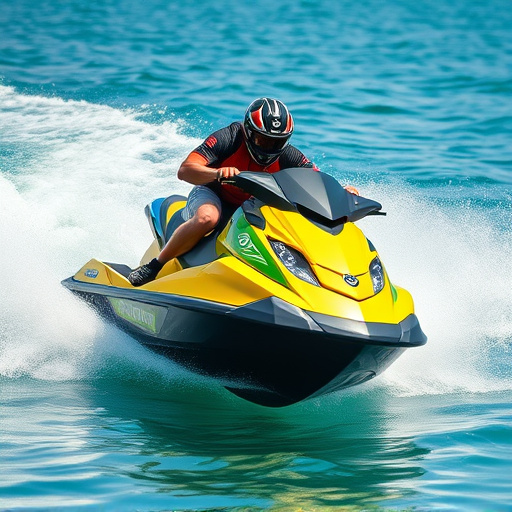
The shift towards eco-friendly energy solutions has inspired remarkable transformations in various industries, and fleet operations are no exception. Many companies are now embracing sustainable practices by adopting electric and hybrid vehicles, significantly reducing their carbon footprint. One notable area of innovation is the use of advanced boat batteries, which play a crucial role in this green revolution on water.
For instance, several maritime businesses have successfully implemented eco-friendly fleet strategies. A case in point is the global ferry service provider, who replaced their traditional diesel-powered vessels with electric-hybrid ferries equipped with high-capacity lithium-ion batteries. This transformation resulted in a dramatic decrease in greenhouse gas emissions and reduced noise pollution, enhancing the overall passenger experience. Similarly, private yacht owners have also contributed to this trend by upgrading to more efficient boat batteries, enabling quieter and cleaner navigation while exploring the waterways.
The Future of Boat Batteries: A Green Revolution
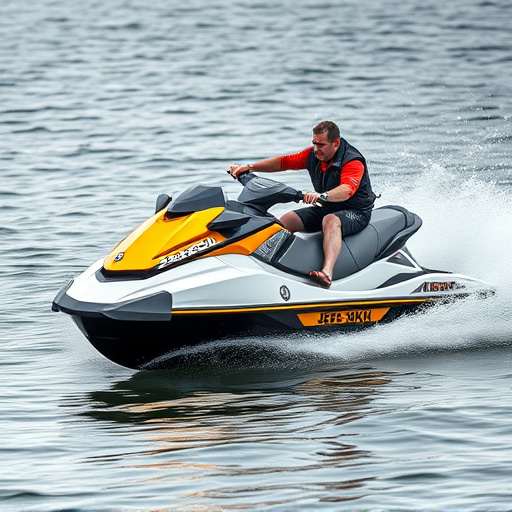
The future of boat batteries is looking ever more green and sustainable, as innovators race to develop eco-friendly alternatives. Traditional lead-acid batteries, long the industry standard, are being phased out due to their environmental impact and limited performance. In their place, new technologies such as lithium-ion and flow batteries offer promising solutions.
These advanced boat batteries not only reduce weight and increase energy density but also boast longer lifespans and faster charging times. Moreover, they significantly cut down on harmful emissions and waste, aligning perfectly with the growing global demand for sustainable transportation. As we move towards a greener future, expect to see these eco-friendly battery innovations become the norm in the boating industry.
Embracing eco-friendly battery innovations is no longer a choice but a necessity for sustainable boating. By understanding the impact of our choices, exploring green technologies like lithium-ion batteries and integrating solar power, we can significantly reduce the environmental footprint of marine applications. Best practices for efficient energy storage, coupled with case studies demonstrating successful fleet transformations, underscore the viability and benefits of these advancements. As we look to the future, the green revolution in boat batteries promises a cleaner, more sustainable navigation experience for generations to come.
